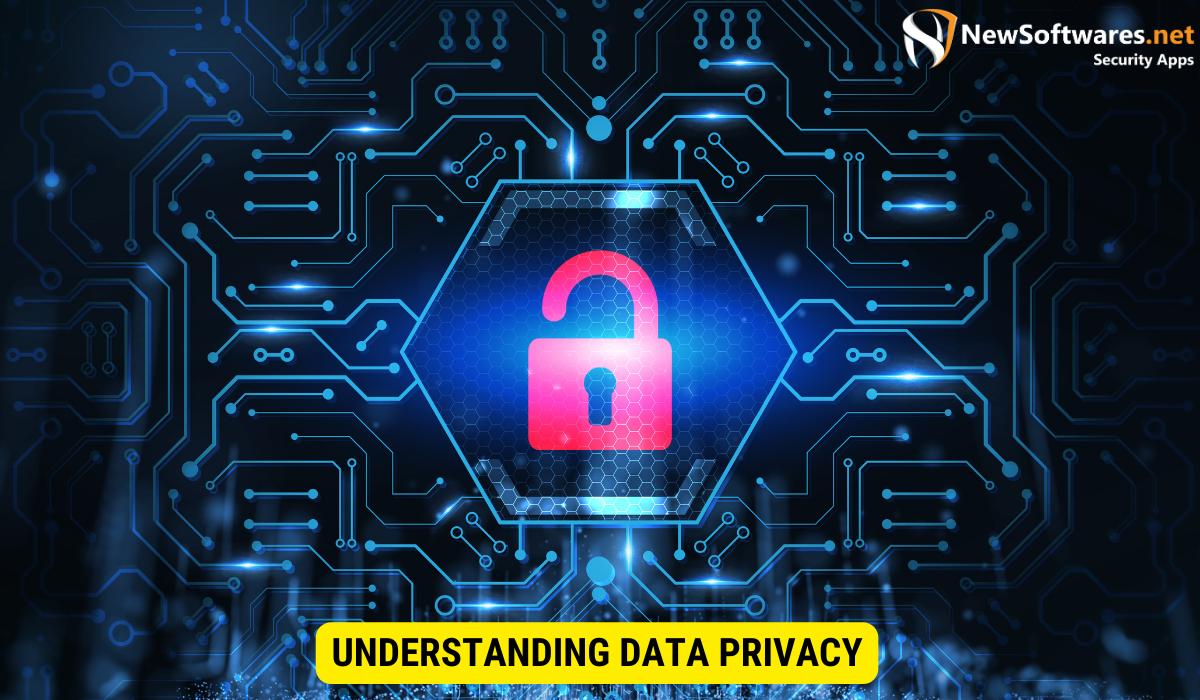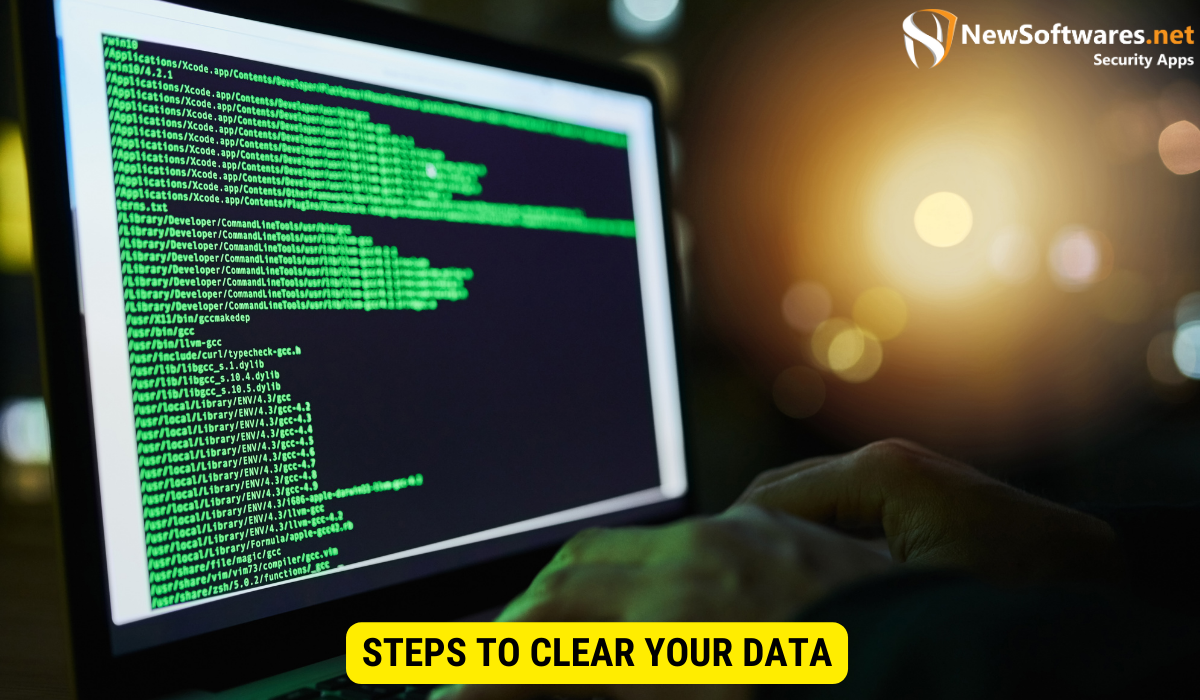Clearing data for privacy is a personal choice that involves removing personal information from devices and online platforms. It can enhance privacy by limiting access to your data but may result in inconvenience and the loss of personalized settings. Key areas to clear include browsing data, app data, and social media data. The frequency of data clearance depends on individual preferences, and it’s advisable to clear data on all your devices for comprehensive privacy protection. However, clearing data does not prevent companies from collecting new data.
Should I Clear Data for Privacy? is a common question that many people grapple with in today’s digital age. With the increasing concerns surrounding data privacy and security breaches, it’s essential to understand the impact of clearing data on your online experience. Together, we will delve into the importance of data privacy, the role of personal data in the digital age, and the steps you can take to clear your data for enhanced privacy.
Understanding Data Privacy

Data privacy refers to the protection and safeguarding of personal information from unauthorized access, use, or disclosure. It is the right of individuals to have control over how their personal data is collected, stored, and utilized by organizations.
In today’s digital age, where information is constantly being shared and stored, data privacy has become a significant concern for entities and organizations alike. With the increasing amount of personal data being collected and processed, it is essential to understand the principles, policies, and practices that govern the handling of this sensitive information.
What is Data Privacy?
Data privacy encompasses the principles, policies, and practices governing personal information handling. It ensures that individuals have the power to determine who can access their data and how it is used.
Personal data can include a wide range of data, such as names, addresses, phone numbers, social security numbers, financial information, and even biometric data. Protecting this information from unauthorized access is crucial, as it can be used for various purposes, including identity theft, fraud, and other nasty activities.
Organizations that collect and store personal data are responsible for implementing robust data privacy measures. These measures may include encryption, access controls, regular security audits, and worker training to ensure that private information is handled securely and complies with relevant data protection laws.
Why is Data Privacy Important?
Data privacy is crucial in maintaining individuals’ privacy, security, and personal autonomy. When data falls into the wrong hands, it can lead to identity theft, fraud, and other spiteful activities. Therefore, protecting personal data is vital to safeguarding our digital lives.
Furthermore, data privacy is not just a matter of personal security but has broader societal implications. Personal data is often shared between organizations, governments, and other entities in an interconnected world. Without proper data privacy measures, individuals may lose control over their information, leading to potential abuses and violations of privacy rights.
Moreover, data privacy is closely linked to trust. When individuals trust that their individual information is being handled responsibly and securely, they are more likely to involve in online activities, such as e-commerce, social media, and other digital services. This trust is essential for the growth and development of the digital economy.
As technology advances and data becomes an increasingly valuable asset, the importance of data privacy will only continue to grow. Individuals, organizations, and policymakers must work together to protect and respect data privacy in the digital age.
The Role of Personal Data in the Digital Age
In today’s interconnected world, personal data has become a valuable commodity. Companies and organizations collect vast amounts of data to understand consumer behavior, develop targeted advertising campaigns, and improve their products and services.
Personal data is collected through various channels, such as online surveys, social media platforms, website cookies, and mobile applications, to name a few. Each time you interact with a digital service, you leave a digital footprint that these entities can analyze and utilize.
Online surveys have developed a popular method for collecting personal data. Companies often offer incentives, such as discounts or freebies, to encourage individuals to participate. These surveys ask various questions, from demographic information to preferences and opinions. By analyzing the responses, companies gain insights into consumer behaviour and can make informed decisions about their products and services.
Social media platforms like Facebook & Instagram also play a significant role in data collection. When you create an account on these platforms, you provide personal information such as your name, age, and location. Additionally, your interactions, such as likes, comments, and shares, provide valuable data about your interests and preferences. This information is then used to distribute targeted advertisements and personalized content.
Website cookies are another common method of data collection. When you visit a website, minor text files, identified as cookies, are stored on your device. These cookies track your browsing behaviour, including the pages you visit, the links you click and the time you spend on each page. This data helps companies understand how users navigate their websites and make improvements to enhance user experience.
Mobile applications have also revolutionized data collection. When you download and use an app, you often grant it access to various permissions, such as your location, contacts, and camera. This allows the app to collect data about your activities, preferences, and physical movements. For example, fitness apps track your exercise routines, while navigation apps collect data about your travel patterns.
The Use of Personal Data by Companies
Companies use personal data to tailor their offerings, provide personalized recommendations, and improve customer experiences. Companies can gain valuable insights into consumer preferences and behaviours by analysing the data they collect. This enables them to develop targeted marketing campaigns, create personalized product recommendations, and deliver customized user experiences.
For example, e-commerce platforms use personal data to recommend products that interest individual users. These platforms can suggest relevant products and enhance the shopping experience by analysing their browsing and purchase history and demographic information. Similarly, streaming services use personal data to curate personalized playlists and recommend movies or TV shows based on users’ viewing habits.
While using personal data can enhance convenience and efficiency, it raises concerns about the potential misuse of data and invasion of privacy. There have been instances where companies have faced backlash for mishandling personal data or using it for unethical purposes. This has increased scrutiny and calls for stricter regulations to protect individuals’ privacy rights.
In conclusion, personal data plays a crucial role in the digital age. It is collected through various channels and used by companies to understand consumer behaviour, develop targeted marketing campaigns, and improve customer experiences. However, using personal data also raises concerns about privacy and data security. As technology advances, finding a balance between utilizing personal data and protecting individuals’ rights will be an ongoing challenge.
Clearing Data for Privacy
Clearing data means removing or deleting personal information from various devices and online platforms. By doing so, individuals can reduce the risk of their data being accessed, misused, or exploited by unauthorized individuals or entities.
What Does Clearing Data Mean?
Clearing data involves erasing or wiping out personal information stored on smartphones, tablets, or computers. It includes deleting browsing history, cookies, cached files, and other data traces that may reveal personal preferences, habits, or sensitive information.
Types of Data to Clear for Privacy
When clearing data for privacy, it is important to focus on key areas:
- Browsing Data includes clearing your browsing history, cookies, and cached files.
- App Data: Many mobile apps store personal data, so clearing app data can be crucial for enhanced privacy.
- Social Media Data: Clear out your social media accounts periodically to minimize the data available to third parties.
The Impact of Clearing Data on Your Online Experience
Clearing data can have both positive and negative impacts on your online experience. Let’s explore the pros and cons:
Pros and Cons of Clearing Data
Pros:
- Enhanced Privacy: Clearing data helps protect your personal information from being accessed by unauthorized individuals.
- Reduced Tracking: By clearing cookies and browsing history, you can limit the tracking of your online activities.
Cons:
- Loss of Personalization: Clearing data may result in losing personalized settings, such as saved passwords or website preferences.
- Inconvenience: Some websites may require re-login or reconfiguration after you’ve cleared your data.
How Clearing Data Affects Online Functionality
Clearing data can impact certain online functionalities and services:
- Targeted Ads: Clearing data may disrupt targeted advertising, resulting in less relevant ads.
- Auto-Fill Forms: Cleared data may require you to manually enter previously saved information.
Steps to Clear Your Data

Clearing Browser Data
To clear your browser data, follow these steps:
- Open your preferred web browser’s settings or preferences.
- Navigate to the “Privacy & Security” or “Clear Browsing Data” section.
- Select the data types you wish to clear, such as browsing history, cookies, and cached files.
- Choose the time range for data clearance: last hour, day, week, or all time.
- Click the “Clear Data” or similar button to initiate removal.
Clearing App Data
To clear app data on your mobile device, follow these general steps:
- Access your device’s “Settings.”
- Navigate to the “Apps” or “Applications” section.
- Select the specific app you want to clear data for.
- Tap on “Storage” or “Manage Storage.”
- Click the “Clear Data” or similar button to delete the app’s data.
Clearing Social Media Data
To clear your social media data, log in to the respective platform and navigate to your account settings. Look for options related to privacy, data, or security settings. From there, you can usually find the option to delete or clear your account data.
Key Takeaways
- Clearing data for privacy is a personal choice that can help protect your personal information from unauthorized access. It involves removing personal data stored on devices and online platforms.
- When clearing data, focus on key areas such as browsing, app, and social media data.
- Clearing data can enhance privacy but may result in the loss of personalized settings and some inconvenience.
- Remember to follow the steps to clear your data on browsers, apps, and social media platforms.
FAQs
Is clearing data necessary for privacy?
Clearing data can enhance privacy by reducing the quantity of personal information available on devices and online platforms. However, it’s not the only measure you can take. Other steps like strong passwords and two-factor authentication also contribute to data privacy.
How frequently should I clear my data?
The frequency of data clearance depends on individual preferences and concerns regarding data privacy. Some people prefer to clear data regularly, while others may do it less frequently. Consider your online activities and the sensitivity of the data you generate to determine the appropriate interval.
Do I need to clear data on all my devices?
If you use multiple devices to access the internet or store personal data, it is advisable to clear data on all of them. This ensures that your personal information is not inadvertently exposed through different channels.
Will clearing data stop data collection by companies?
Clearing data from your devices and online platforms does not prevent companies from collecting new data. However, it removes the stored information they previously collected, thus limiting their access to past data. To minimize data collection, consider adjusting privacy settings and permissions on each digital service you use.
Conclusion
Clearing data for privacy is a step individuals can take to retain control over their personal information in an increasingly data-centric world. By understanding the importance of data privacy, the role of personal data, and the steps you can take to clear your data, you are empowered to make informed choices regarding your digital privacy and security.
